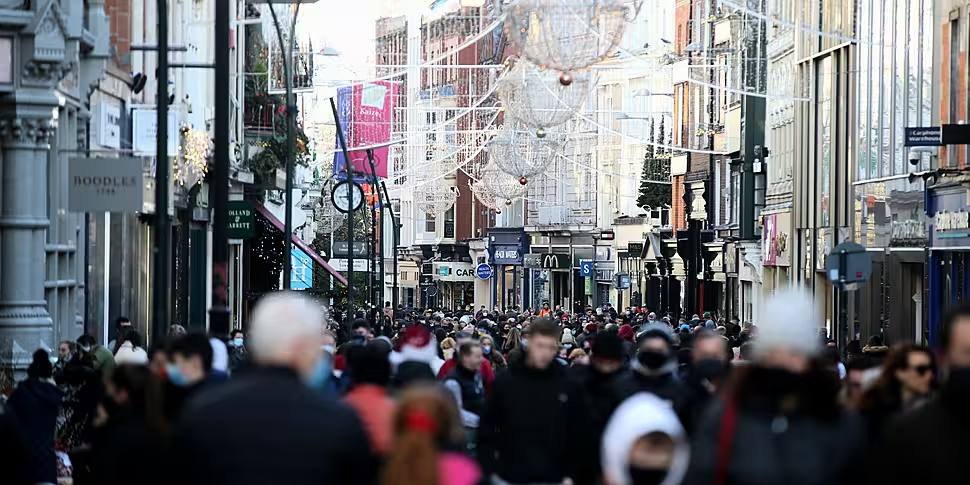A Trinity Professor says she's 'really mad' schools are likely to close - saying the current surge in new coronavirus cases was 'predictable' due to the Government's decision to ease restrictions in December.
Aoife McLysaght says ministers should have followed NPHET's advice and kept hospitality closed for December.
She pointed to data showing that the COVID-19 rates started to change shortly after retail and hospitality reopened.
It comes after more than 6,000 new cases of the virus were reported yesterday - by far the daily number of the pandemic.
Meanwhile, senior Government ministers are meeting later today to consider closing schools until the end of the month.
Aoife McLysaght - a Professor of Genetics at Trinity College Dublin and Member of the Independent Scientific Advocacy Group - spoke to Newstalk Breakfast about the current situation.
She said while there hasn't been a formal decision to keep schools closed, she can't see any other option at this point.
She said: “I’m really mad, because my children are happier in school… I think everybody agrees children are happier in school.
“I think this was predictable. We predicted 4,500 cases a day, and that would have been a similarly bad disaster.
“It was restaurants, retail and all the other things - it was the fact it was the Christmas season, and the tone around everything was ‘go and have a Christmas’".
Ahead of the easing of restrictions in early December, NPHET had warned of the risks of opening hospitality while allowing household visits over the festive period.
It recommended that the hospitality sector remain closed in favour of allowing household visits.
Professor McLysaght believes the Government should have followed that advice.
She observed: “If you look at the data on the increase in cases, you can clearly see the change happens when retail opens and when hospitality opens. That’s when the numbers started to change.
“The data is quite plain - the change in the case numbers happened before family visits happened…. The pattern was already in place."
While the Government has often cited the need to balance economic needs with public health ones, Professor McLysaght said the current lockdown is going to do significant economic damage - with the likes of the hospitality sector closing again after only being allowed reopen for three weeks.
Zero COVID
The Independent Scientific Advocacy Group has strongly supported a zero-COVID approach on the island.
The border with Northern Ireland and free travel in the EU are often cited as particular challenges when taking such an approach - but Professor McLysaght believes those challenges can be overcome.
She observed: “The idea that we can’t do anything is kind of a cop out, and that’s what gets us back in this situation.
“This was a problem tackled in Australia… they have independent health boards and governments. It’s not the same as Europe, but we can learn from them.
“They created what they called border bubbles - you treat the border area as an are unto itself. You can say people are allowed move around within that bubble, and that border is no longer a line any more.
“There are things that can be done, if only there was the political will.”
She said countries within the EU - such as Germany - have introduced more border controls than Ireland has during the pandemic.
She also noted that New Zealand hasn't completely shut itself off to become largely COVID-free, instead introducing mandatory quarantine for those who do arrive in the country after international travel.









